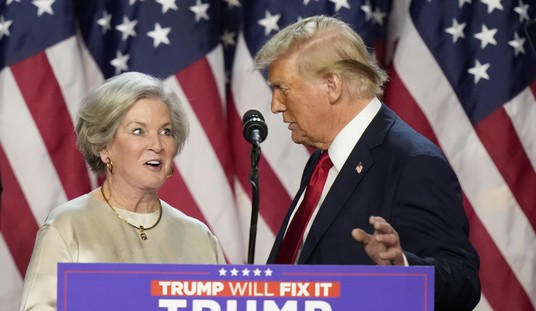Paul Ryan released his budget proposal for FY 2014 today, and as expected, it will balance within 10 years. Let me first say that this budget would be superior to the status quo a million times over. Medicaid and Food Stamps would be block granted to the states and Medicare would be subject to at least some free market reforms. Most importantly, it defunds the Obamacare programs. If Republicans would only fight for this budget during the debt ceiling fisticuffs, many conservatives would be more than satisfied.
However, as we’ve been showing over the past few weeks, there is a difference between balancing a budget and limiting government. Balancing a budget is all about accounting. You can coalesce enough small cuts across many programs and come up with a big number, without ever eliminating many of the 2189 federal government assistance programs. I’m not sure how many of them would be abolished under this budget.
Moreover, an exclusive focus on balancing budgets instead of limiting government leads one to begin using every desperate accounting measure to achieve that balance. Most prominently, we start factoring in optimistic revenue projections from economic growth and new tax hikes.
Last year, the Ryan budget proposed for FY 2013 didn’t balance until 2040. This one balances in 10 years. What changed? You might think that this budget contains many new reforms and downsizing of government. However, it is essentially the same budget. Let’s compare the 10-year revenue and outlay figures of the two budgets:
FY 2013
Outlays: $40.135 trillion
Revenues: $37.008 trillion
FY 2014
Outlays: $41.466 trillion
Revenues: $40.241 trillion
Here is a comparison of the outlays by major category for the two budgets:
As you can see, this year’s budget actually spends more money, while all of the balance is achieved through $3.233 trillion in new revenues. Spending increases an average 3.4% per year in this budget; last year’s budget increased spending by 3.1% per year. Now, granted that the new budget goes from 2014-2023 while the last budget covered 2013-2022, meaning that this one contains an additional out year when there will be more baby boomer retirees. That is why there is more spending. But the balance is achieved by including the $618 billion in Obama/McConnell fiscal cliff tax hikes, $1 trillion in obamacare tax hikes, and a more optimistic revenue projection into the baseline.
There is nothing particularly wrong with the last point; it’s just that we should not be fooled into thinking that this year’s budget is somehow radically different from last year’s budget. If you didn’t like last year’s budget, this one is pretty much the same; it just uses tax hikes and new revenue projections to balance.
Consequently, conservatives who agreed to vote to suspend the debt ceiling in January and pass a CR that funded Obamacare – all in return for a 10-year balanced budget – should be asking themselves the following question. Why was last year’s Ryan budget underwhelming in their estimation, yet this year’s budget is so magnanimous that it was worth signing the “Williamsburg Accord” with leadership and sell out on the debt ceiling and CR? I can respect someone who liked last year’s budget. It definitely is a lot better than the status quo. But this budget is essentially identical, albeit with $3.3 trillion in more tax revenue.
So House conservatives essentially voted to suspend the debt ceiling on condition that leadership introduce the same budget with tax hikes. Now, the Ryan budget does call for pro-growth tax cuts that are not included in the static scoring of the bill. However, were we to bake those tax cuts into the baseline, the budget would not balance.
Again, tax cuts are a good thing, and should not be avoided just to show a statically balanced budget. I would rather the same budget without the tax hikes (or with the Ryan tax cuts), even if it wouldn’t balance statically. This just goes to show that there is no way to truly balance a budget in a pro-growth way without actually eliminating programs and agencies that are unconstitutional, devolving things like transportation and education to the states, and charting many other functions on a course to privatization. You can’t have it both ways.
Balancing the budget is not an end in itself; it is a means of downsizing government.
Cross-posted from The Madison Project














Join the conversation as a VIP Member